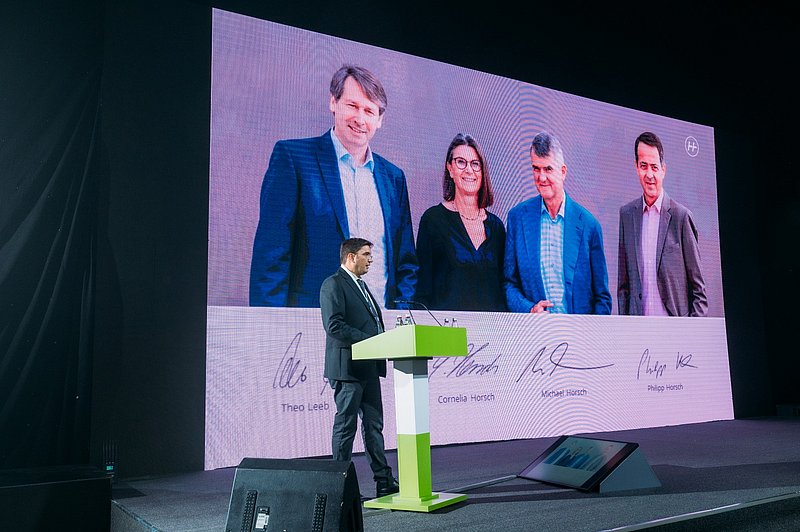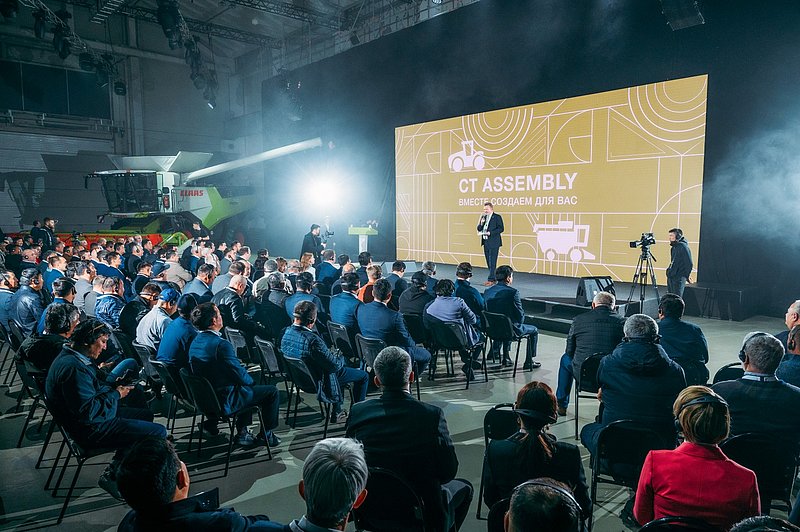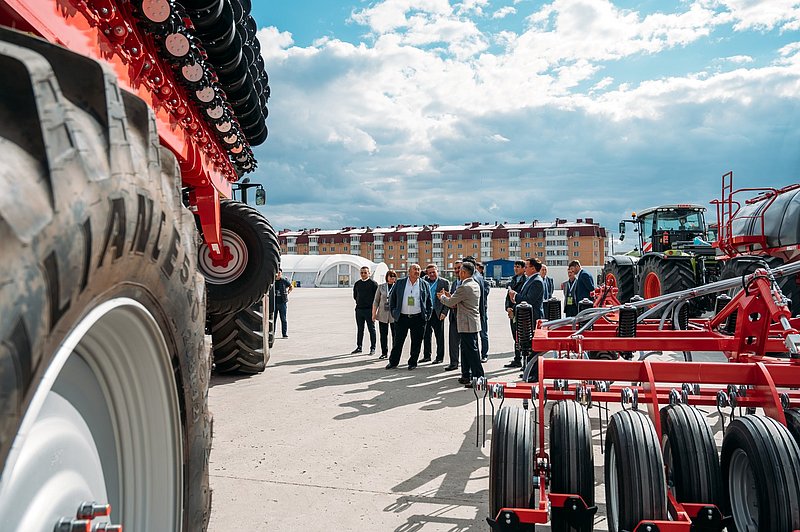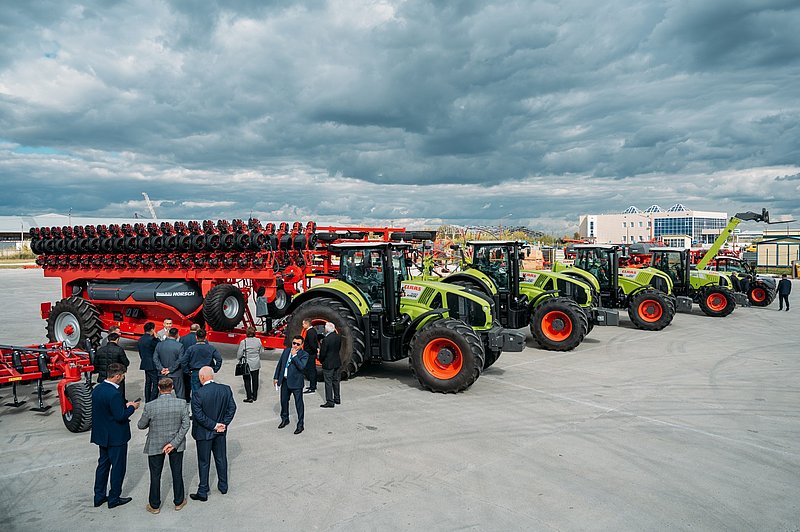Common plant for HORSCH and Claas
In Kazakhstan, too, German agricultural engineering is in great demand. Already in 2021, representatives of the Kazakh Department of Industry and CT Assembly signed an investment contract to have agricultural machines of the manufacturers HORSCH and Claas built in a common assembly plant.
But it was only one year later that the production site was opened officially. “Unfortunately, we had to postpone the official opening because of the pandemic events. We are, of course, all the more happy that we can now inaugurate the new plant with you”, Johannes Kluth (Territory Manager Ukraine-Kasachstan) explained.

In the presence of top-ranking representatives of the Kazakh government the assembly site was started. In addition to president Kosym-Zhomart Tokayev, Roman Sklyar (deputy prime minister), Yerbol Karashukeev (farming minister) and Yerlan Koshanov (head of presidential administration) took part in the opening event.
The starting of the plant is part of a larger co-operation between the Kazakh government and CT Assembly as the operator of the project. The latter also derives from the importer and HORSCH partner, the trading company CT Agro that holds the sales right for HORSCH and Claas in Kazakhstan. “The co-operation of HORSCH and CT Agro already started about 10 years ago, at that time with our first Sprinter 24 NT. The head of the region North Kazakhstan, too, attached major importance to this project. This is why he pushed it enormously and forced it politically. Claas took a leading role with regard to the long negotiations with the political representatives”, Kluth explained.
The special investment contract stipulates the industrial assembly of different Claas harvest machines and tractors but also of HORSCH seed drills resp. cereal seed drills. First and foremost, HORSCH wants to assemble the Sprinter line for the Kazakh market, among others the Sprinter 12 HD, Sprinter 15 NT and 18 NT as well as the Sprinter 24 NT. Johannes Kluth sees a lot of advantages in the synergy between HORSCH and Claas. The products complement each other, and the sales strategy is rather similar: the customer is in the focus of all activities.

For Kazakhstan it is particularly important that the added value is realized in the country. Farmers who buy machines that were produced in the country get subsidies. This is the reason why the production hall for the plant was provided. Moreover, North Kazakhstan is one of the most important agricultural regions in Kazakhstan. For this is where most cereals are produced. Therefore, according to Johannes Kluth, the region is one of the most important sales areas.
HORSCH has already been doing business in Kazakhstan since the end of the 1990s. “The fields over there are relatively large with 300 to 400 hectares and farming is marked by a three-field crop rotation where mainly spring crops resp. wheat are grown. In most regions it is not possible to grow winter crops. And the yields that are achieved are rather low – under 2 tons of summer wheat per hectare. Because of the climate change it gets slightly warmer and the vegetation period became somewhat longer, i.e. the vegetation phase shifts. This allows for growing oil crops, like for example rape. However, they have special requirements on the seed drill. This is where our Sprinters come in. And this is why we set our focus on them and adapted them to the requirements of the customers in Kazakhstan. But we keep an eye on the market and its developments to see which product groups might be added in the future. At the moment, we are keeping all options open.”
The first kits for the machines were already delivered at the end of last year and assembled on site. In spring, they were delivered to the customers. At the time of the opening, cereal harvest took place in Kazakhstan and thus it was the first wheat that was harvested with machines that were assembled in the new plant.

Together with the representatives of the Department of Trade and Industry the partners agreed upon a schedule for the localisation of the machines which starts with a lower level and will increase year by year. “In the first year of the contract, we first adjusted the mechanisms at the production site. Moreover, at the beginning only the mere assembly of the machines was carried out. In a second step, the tasks will be extended, i.e. the pneumatics for the seed drills, too, are to be completely pre-assembled on site.”
To support this complex process, HORSCH provides assembly aids and holds trainings. A delegation from the Kazakh production site has already been trained in Schwandorf. “Moreover, we decided to recruit an own employee who is to co-ordinate everything and guarantees the quality of the assembled machines but also identifies new suppliers.”
